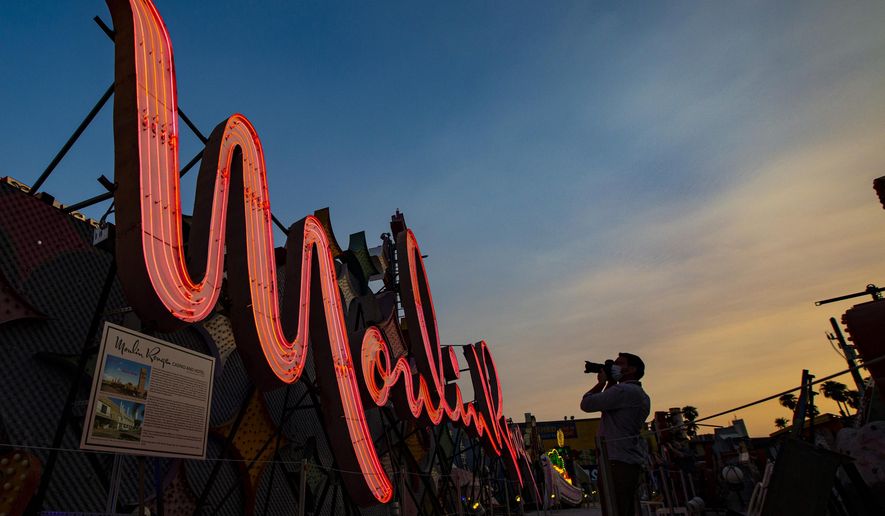LAS VEGAS (AP) - After years of grand visions, close calls and setbacks, the historic Moulin Rouge site in Las Vegas has a buyer: an Australia-based investment firm that plans to construct a casino.
RAH Capital, a newly created Nevada-based company backed by private equity investment firm BBC Capital, closed the deal Dec. 4, Kevin Hanchett, court-appointed receiver for the property, told the Las Vegas Review-Journal. BBC Capital got the go-ahead in mid-November from a Clark County District Court judge.
RAH Capital paid $3.1 million for the vacant 11.3 acres (4.6 hectares), including an active non-restricted Nevada casino license. The buyer agreed to assume nearly $2 million plus interest in liens associated with removal of building materials on the site, Hanchett said.
“My client’s very excited about doing a casino project on the property, has already engaged with some community members, understands the history of the site and my client looks forward to working with the city on planning a great project for that site,” attorney Josh Reid, representing RAH Capital, told the Las Vegas City Council on Nov. 4.
The Moulin Rouge was the first racially integrated casino in Las Vegas for six brief months in 1955 and hosted a meeting in 1960 that desegregated downtown and the Strip.
It is on the U.S. National Register of Historic Places as well as the local register. Fires in recent years gutted the neglected property, located near the busy U.S. 95-Interstate 15 Spaghetti Bowl interchange.
The sale marks the end of an ordeal that began before the Great Recession, when more than 300 investors sank money into an ultimately failed project to revitalize the old hotel and casino. The developer went bankrupt in 2008 and, four years later, so too did the company that used investors’ money to loan $19 million to the developer.
In 2013, the site was placed in court receivership, and Hanchett had been tasked with selling the property and helping investors recoup losses.
As much as the sale represents figurative and literal closure, the conversation about the site has always gone beyond the owner.
Residents of Las Vegas’ Historic Westside area are fiercely protective of the Moulin Rouge, and want to know how plans will uplift the largely minority neighborhood and preserve history.
“The Moulin Rouge is one of the touchy things to our community,” said Henry Thorns, a politically active resident, speaking before the council in early November. “That’s basically one of the only things that we did have left in our community.”
In recent years, the site has been proposed for a $1.6 billion project to revive the casino.
Clark County considered a family services office but walked away in 2017 after community pushback. One group suggested an African American history museum. Operators of Dotty’s taverns expressed interest as did the Southern Nevada Regional Housing Authority, which eyed a casino, museum, new headquarters and affordable housing.
Former Democratic state Assemblyman Harvey Munford, who represented the Historic Westside, used his farewell speech to the Legislature in 2015 to champion the return of the Moulin Rouge. He told the Review-Journal that local leaders want to sit down with the new owners.
“We don’t know anything about their background,” he said. “And they don’t know anything about our tradition in the west Las Vegas.”
Local ownership over the site’s direction is important for Historic Westside “pioneers,” the area’s elders, who feel the neighborhood has been ignored by elected officials for years, according to Munford.
“It’s very unfortunate that we weren’t able to have someone local involved with the project,” said John Johnson, a social services nonprofit executive director. “Now we have an out-of-state company that no one can get in contact with outside of a select few.”
Johnson, who handled community outreach for the housing authority’s proposed acquisition, said he is most concerned about gentrification.
Las Vegas Councilman Cedric Crear, who represents the Historic Westside, said he “would have loved” having a local owner for the site. But he also noted that others had their chance while the property was on the market.
Still, Crear said he met with the new owners and “they seem like a reputable company that has a history of building out mixed-income housing,” although he did not know their plans except for a casino intended to pay homage to the Moulin Rouge.
Crear pledged that the city would work with the owners to ensure the site’s history.
“It’s nice to see that there are those who are looking to make an investment in our community,” he said, acknowledging how that had been rare over the years.
His predecessor, former Councilman Ricki Barlow, said the casino project, however it might ultimately look, could be an economic catalyst for an area that was suffering even before the coronavirus pandemic.
“That provides hope and that’s what the residents in the community need - a shot in the arm that something is coming,” Barlow said.




Please read our comment policy before commenting.